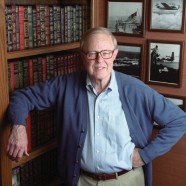
I call it the “Life Tree” – a living combined effect. It came to me in a dream. I saw a vast circle of small lights – like flickering candles, or maybe tiny Christmas lights.
But what did it mean, or symbolize? I soon realized that it was not meant to suggest some “divine spark.” It was the collective effect of all the living organisms – all the packets of energy, biomass, and “control information” – that have arisen on Earth over the past 5.8 billion years or so. Over this incredibly long time, life has gradually invented ever more elaborate and complex forms of cooperative/combined effects (synergies). Thus, in a very real sense, humankind – one of the most recent of life’s “inventions” – can be called a “Self-Made Man” (as biologist Jonathan Kingdon put it).
But we are also embedded in – and dependent upon – a natural environment that has itself evolved over time, and we share it with – and have been shaped by – many other “points of light.” Whether we are aware of it or not, we are “all in this together” (as the old saying goes). Life on Earth is a “collective survival enterprise.”
The 20th Century paleontologist-priest Pierre Teilhard de Chardin famously observed that, in humankind, evolution has become conscious of itself. But do we understand that the future of this great tree of life is very fragile – perhaps even in jeopardy? Humankind has become the greatest shaping influence in evolution – the brightest candle on the tree – and the fate of life on Earth is now in our hands. However, life’s collective light is in grave danger of being snuffed out.
As the prominent 20th century columnist/ commentator Walter Lippmann suggested in an interview shortly before he died: “The supreme question before mankind – to which I shall not live to know the answer – is how men will be able to make themselves willing and able to save themselves.”
Almost a half century later, Lippmann’s “supreme question” remains unanswered. We must act collectively now, or else. As The New York Times opinion columnist Thomas Friedman has warned: Later, will be too late.
Peter A. Corning, Ph.D.
Institute for the Study of Complex Systems
Seattle WA, USA
(November, 2024)
https://complexsystems.org/









